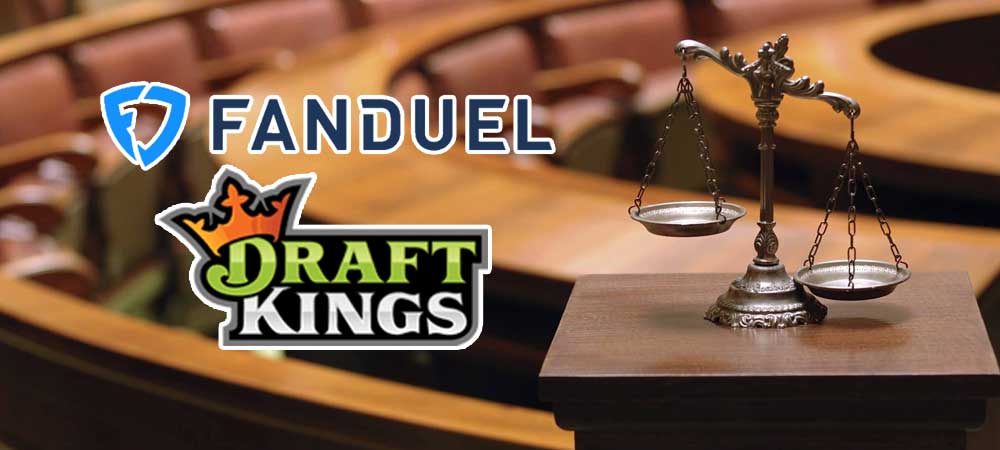- The Illinois Supreme Court ruled on April 16 that some daily fantasy sports games are legal under state law, as they are games of skill rather than chance.
- This decision overrules a previous opinion by the former Illinois Attorney General in 2015, which classified all daily fantasy games as illegal gambling.
- The Court’s decision could have huge ramifications for DFS operators, many of whom were blacklisted from Illinois mobile sports betting for 18 months because of the AG’s opinion.
- A major caveat in the decision is that it only specifies “head-to-head” DFS contests as being games of skill, meaning that other types of contest might not be covered.
SPRINGFIELD, Ill. – The Illinois Supreme Court ruled on April 16 that at least some daily fantasy sports contests constitute games of skill and are thus legally permissible in Illinois.
The Court’s decision could help expand Illinois’s nascent mobile sports betting market.
This decision overruled a 2015 opinion from then-Illinois Attorney General Lisa Madigan that daily fantasy games violated state gambling laws.
The Attorney General’s decision was used as the basis for a “penalty box” provision in Illinois’s 2019 sports betting bill that would bar any company that offered “illegal” DFS games from entering the Illinois mobile sports gambling market for a period of 18 months.
The timing of the Supreme Court’s decision is not a coincidence, as Illinois recently launched sports betting in March, and several major daily fantasy sports (DFS) operators—particularly DraftKings and FanDuel – are also some of the largest sports betting operators in the country.
With this decision, some DFS games are now legal in Illinois, but questions remain about its application to DFS as a whole, as there are more types of DFS contests than those described in the decision.
The Case – Dew-Becker v. Wu
The plaintiff in the case, Colin Dew-Becker, sued Andrew Wu after losing $100 to Wu in a DFS head-to-head contest in 2016. The plaintiff alleged that DFS constituted unlawful gambling and he was thus entitled to recover damages.
The Court ruled in favor of the defendant, partially because losers are barred from seeking recovery if a third party is involved in a gambling transaction.
They also went one step further and cited academic research suggesting that DFS contest results are based primarily on skill, rather than luck.
The wording of the majority decision is notable for another reason, however:
“The majority looked to ‘recent research’ to find that skill is the predominant factor in determining the result of head-to-head daily fantasy contests. As a result, the court determined that the plaintiff was not engaged in gambling and thus, could not recover gambling losses.”
The Court specifies that “head-to-head” DFS contests constitute games of skill but does not extend that judgment to other types of DFS contests. Therefore, these other DFS contests, which can include mass entry tournaments between thousands of players, are still in legal limbo.
Implication For Penalty Box Provisions
The Court’s decision was a huge win for DFS operators in Illinois, but it is uncertain what its effect on Illinois sports betting will be.
Major operators like DraftKings and FanDuel offered other types of DFS contests in addition to head-to-head contests, so they could still be subject to the 18-month waiting period before being allowed to enter the mobile sports betting market in Illinois.
The only certainty is that the decision opened the doors for head-to-head DFS contests. If the Court further determines that the penalty box provision is unlawful, however, it would be a huge win for bettors in Illinois.
Advertising Disclosure
In order to provide you with the best independent sports betting news and content LegalSportsBetting.com may receive a commission from partners when you make a purchase through a link on our site.
News tags: Dew-Becker v. Wu | DraftKings | FanDuel | Illinois | Illinois Attorney General | Illinois Supreme Court | Lisa Madigan

With a dual background in English and sports performance and business analytics, Carter aims to write stories that both engage and inform the reader. He prides himself on his ability to interweave empirical data and traditional narrative storytelling. When he isn’t keeping readers up to date on the latest sports betting legal news, he’s banging his head against a wall regretting his decision to be a Tampa Bay Buccaneers fan.


 Bitcoin Sports Betting Sites
Bitcoin Sports Betting Sites Best Online Sports Betting
Best Online Sports Betting Famous Sports Bettors
Famous Sports Bettors States With Legal Sports Betting
States With Legal Sports Betting Sports Betting Events
Sports Betting Events




